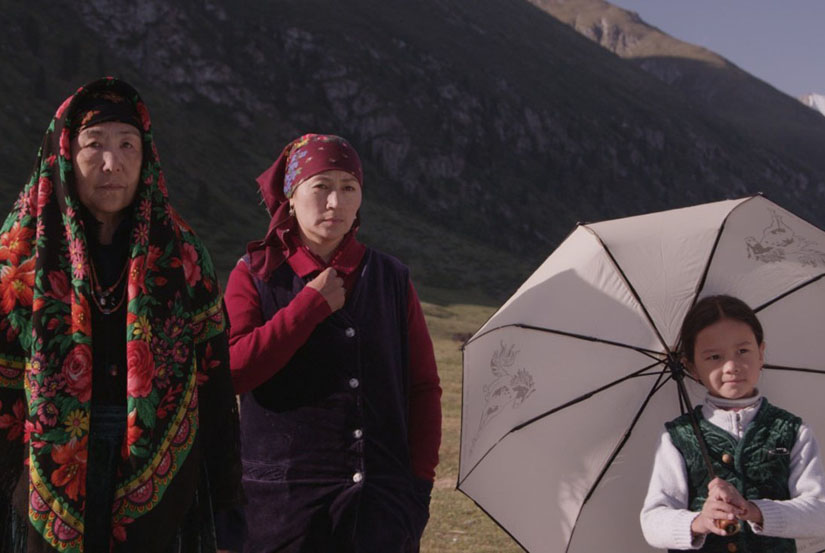
- Film
Foreign Film Submissions, 2015: Heavenly Nomadic (Kyrgyzstan)
Part of the Hollywood Foreign Press Association’s mission is to foster greater understanding through world cinema. This year 72 Foreign Language films were submitted for Golden Globes consideration. Here is an overview of one of them.
There are still places in this world where people live in harmony with nature and its mythology. A family of nomads dwelling high in the mountains of Kyrgyzstan doesn't need any of the conveniences of modern civilization to achieve happiness. Heavenly Nomadic by actor-turned-director Mirlan Abdykalykov is a contemporary tale of paradise lost set in a remote region of the central Asian country.
Filmed on location, the movie — also known by its local-language title, Sutak — is about a family of nomads living in the harsh, but beautiful surroundings of the Turgen gorge near Lake Issyk-Kul. Three generations of a nomadic family share a cozy yurt pitched on a grassy plain surrounded by high peaks. Elderly herdsman Tabyldy (Tabyldy Aktanov) is the head of the household; his wife, Karachach (Anar Nazarkulova), does the cooking and looks after their seven-year-old granddaughter, Umsunai (Jibek Baktybekova), while their daughter-in-law, Shaiyr (Taalaikan Abazova), takes their herd to graze and performs the other heavy manual labor it takes to keep them in the horse-milk trade.
Over dinner one night, Umsunai asks about the chirping call of the sutak (the bird that gives the film its original-language title) and why Abdykalykov responds to its call by putting out a dish of horse’s milk and asking for forgiveness. Karachach recounts a legend about the bird, which involves a wife suspected of sin just because she talked to another man. Shaiyr understands her insinuation. Umsunai, however, is more taken with her grandfather’s tale about a hunter turned into a hawk, who watches over the family.
The absence of other men in the family is keenly felt. Shaiyr’s son Ulan (Myrza Subanbekov) is studying architecture in the city, much to Karachach’s disapproval, and her husband died some years ago, drowned in a mountain river while trying to save a foal. Tabyldy still grieves that he could not recover his son’s body for a proper burial and spends hours dragging stones from the river to build a memorial.
In the eyes of seven-year-old Umsunai, legends meld with reality and help her overcome her grief over her deceased father. When her uncle returns from the city, she enthusiastically devours his stories of urban life. Yet, in her grandparents’ minds, the very same stories stir up dismal fears about their son’s detachment. Umsunai’s mother is also reluctant to leave their modest rural home behind, even if it means foregoing the chance of a new relationship. For the elderly herdsman and his wife, the heavy machinery that suddenly appears on the meadows where their horses graze represents an omen of painful change. It’s as if a part of their own souls disappear with every destroyed piece of the landscape.
This poetic essay about waning traditions is actor Mirlan Abdykalykov's debut feature and was based on a screenplay by renowned director Aktan Arym Kubat.
Nellee Holmes